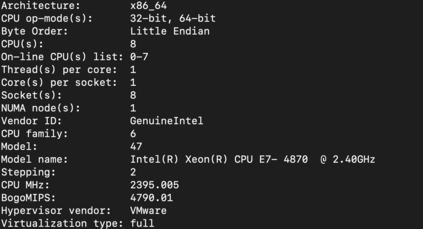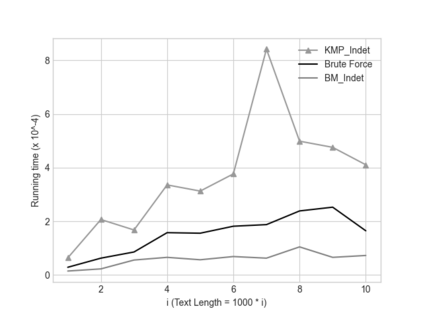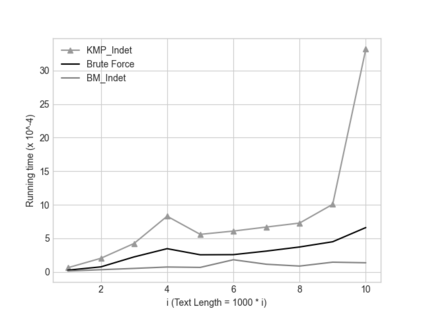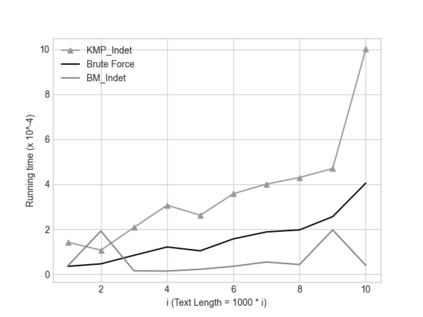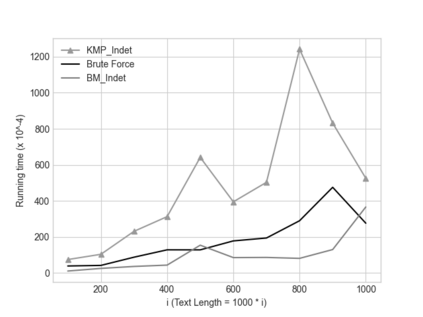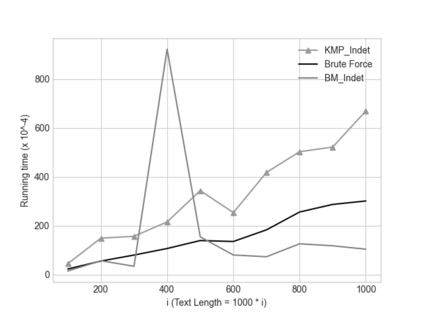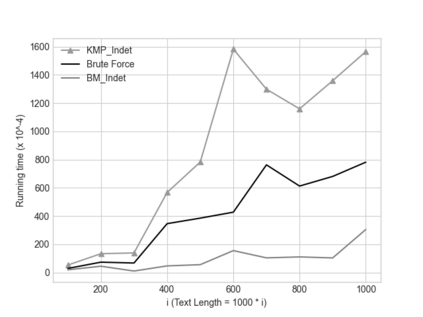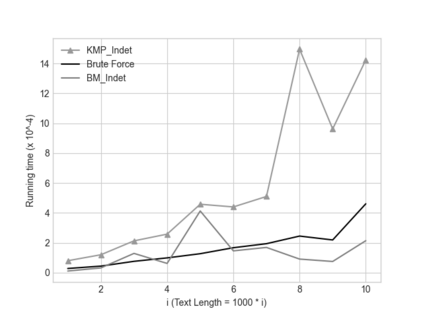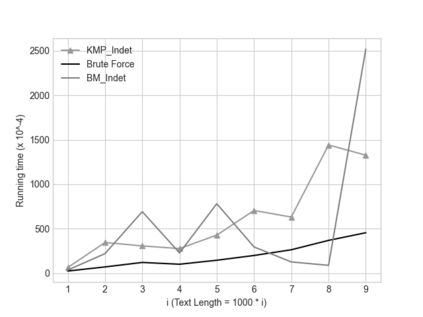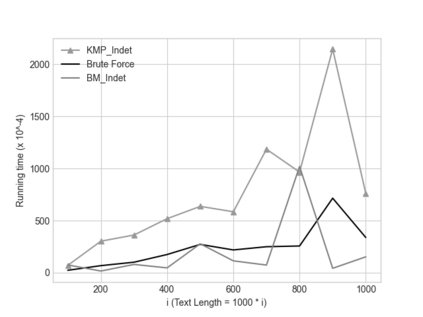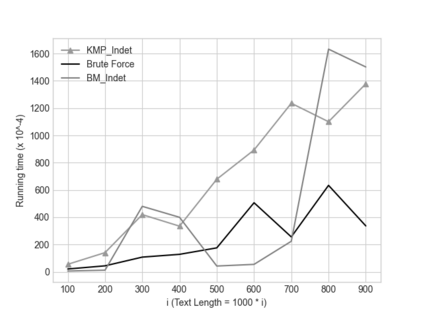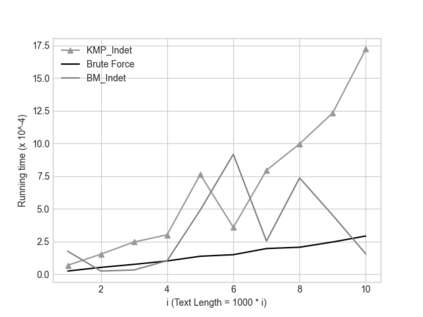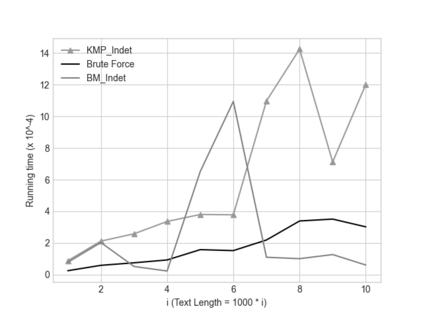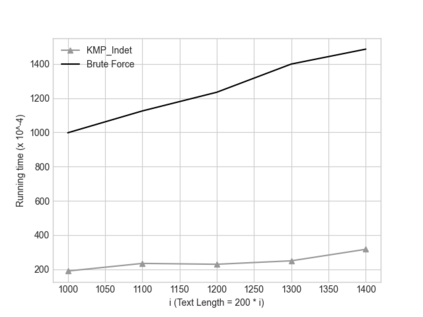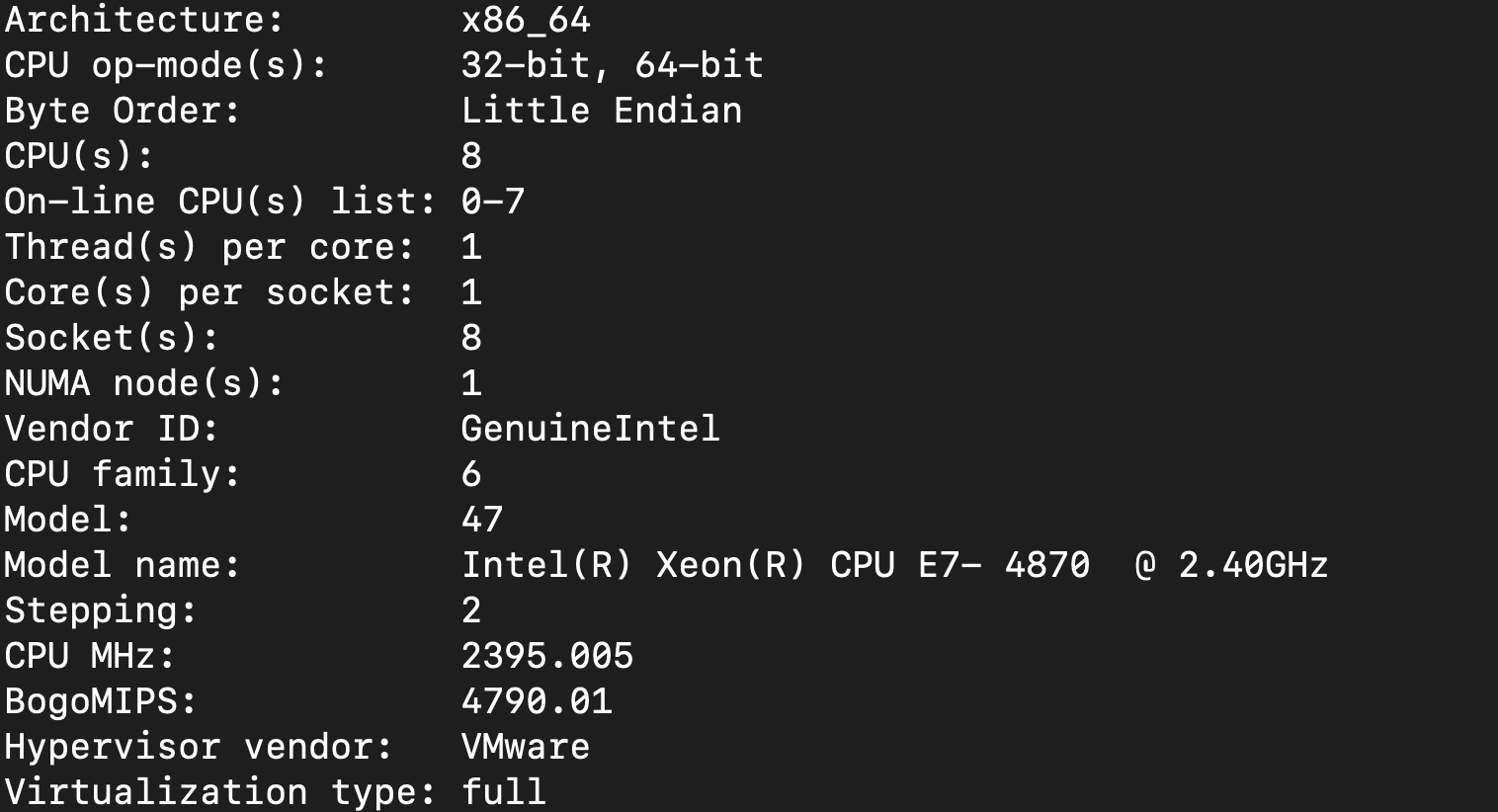In this paper we describe two simple, fast, space-efficient algorithms for finding all matches of an indeterminate pattern $\s{p} = \s{p}[1..m]$ in an indeterminate string $\s{x} = \s{x}[1..n]$, where both \s{p} and \s{x} are defined on a "small" ordered alphabet $\Sigma$ -- say, $\sigma = |\Sigma| \le 9$. Both algorithms depend on a preprocessing phase that replaces $\Sigma$ by an integer alphabet $\Sigma_I$ of size $\sigma_I = \sigma$ which (reversibly, in time linear in string length) maps both \s{x} and \s{p} into equivalent regular strings \s{y} and \s{q}, respectively, on $\Sigma_I$, whose maximum (indeterminate) letter can be expressed in a 32-bit word (for $\sigma \le 4$, thus for DNA sequences, an 8-bit representation suffices). We first describe an efficient version \textsc{KMP\_Indet} of the venerable Knuth-Morris-Pratt algorithm to find all occurrences of \s{q} in \s{y} (that is, of \s{p} in \s{x}), but, whenever necessary, using the prefix array, rather than the border array, to control shifts of the transformed pattern \s{q} along the transformed string \s{y}. %Although requiring $\O(m^2n)$ time in the theoretical worst case, in cases of practical interest \textsc{KMP\_Indet} executes in $\O(n)$ time. We go on to describe a similar efficient version \textsc{BM\_Indet} of the Boyer-Moore algorithm that turns out to execute significantly faster than \textsc{KMP\_Indet} over a wide range of test cases. %A noteworthy feature is that both algorithms require very little additional space: $\Theta(m)$ words. We conjecture that a similar approach may yield practical and efficient indeterminate equivalents to other well-known pattern-matching algorithms, in particular the several variants of Boyer-Moore.
翻译:在本文中,我们描述两个简单、快速、空间效率的算法, 以找到所有不确定模式的匹配值 $\ s{p} =\ s{p} [1. 0.] 美元, 在一个不确定的字符串 $\ c{x} =\ s{x} [1..n] 美元, 在“ 小” 命令字母 $\ sgma$ - 比如, $\ sgma = \ sigma\\\\ le 9$。 两种算法都取决于一个预处理阶段, 以整数字母 $\ sgma$ 取代 美元 {s{p} [1. 美元] [1. 美元] 美元, 在一个不固定的字符串中, 将一个额外的 {s\ qx} 和\ sr\ pr\ p*, 以等量的正常的字符串 。

